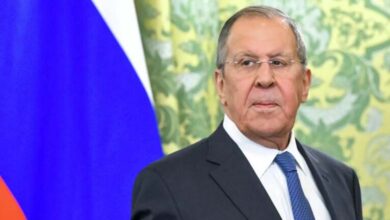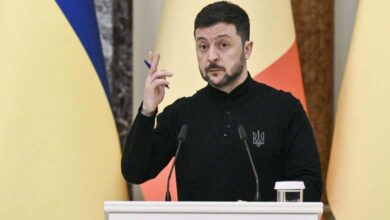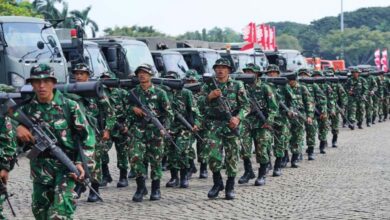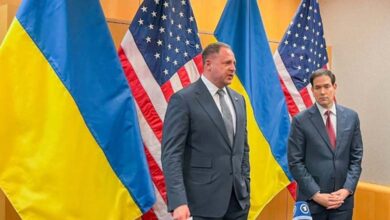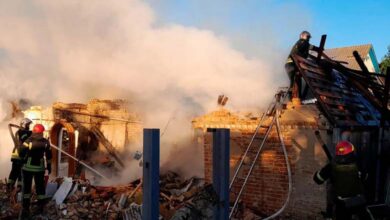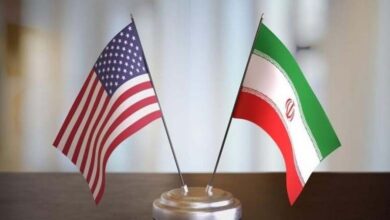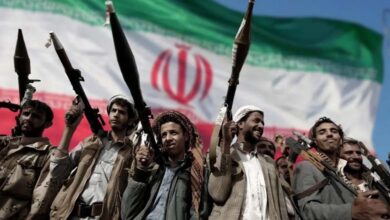“Revolution or catastrophe”? .. a decade on “February 11” and Yemen still bleeds

And the Yemeni street struck a sharp divide on the 10th anniversary of the protests which raised slogans of economic suffering and rejection of corruption before they turned into overwhelming chaos that destroyed the state system and unleashed a fierce war that caused the biggest humanitarian crisis in the world.
Social media sites have witnessed a heated debate that February 11 was a bad day in the country, and they are among the Yemeni people who launched the hashtag #February 11 Nakba, listing the stations 10 years of loss of the country and their plunge into a conflict that destroyed all peace efforts.
Supporters of the Brotherhood launched the hashtag #the February 11 Revolution, as leaders of the terrorist organization from outside the country competed to exploit satellite channels built from the blood of young people dreaming of the future to present constructive speeches that continue to promote the same illusion despite all the tragedies of the poor country.
As usual, the Houthis were absent from this, as they were the only ones who took the price of all the chaos of 2011 and the overthrow of Sanaa 2014, and he was considering “February 11,” which one of his partners was the anniversary of the victory of sectarianism in Iran under the leadership of Khomeini (the former Iranian leader) in 1979, and today celebrates that day in the heart of the capital.
The coup plotters had found a golden opportunity out of the chaos to reach the streets of Sana’a, claiming to participate in peaceful protests, after nearly a decade of their armed rebellion in ”Saada” and their six consecutive wars to exhaust the Yemeni army (2004 -2009).
The period of failure of the power partners after the chaos represented an opportunity that culminated in their terrorist project by penetrating state institutions and dismantling the camps, leading to the coup of September 21, 2014, based on a precise plan drawn up by Iranian intelligence services, officers of the Revolutionary Guards and terrorist Hezbollah.
Celebrate failure
And from the cities of Turkey, the leader of the Islah Brotherhood party, Muhammad al-Yadumi, Tawakkul Karman and many of the most important symbols of the 2011 spring chaos celebrated the failure, at a time when Yemen lives in tragic conditions after the Houthi coup, which actually started in the Sanaa University Square camps.
In addition to the rarity of such speeches by Yemenis, former Yemeni foreign minister Dr Abu Bakr al-Qirbi, who celebrated the Muslim Brotherhood terrorist organization on the tenth anniversary of the state’s demolition, said stated that “even the planners of the Spring of Anarchy recognized the failure of their project in Yemen and the devastation that plagued the region and the conflict he caused.
The Yemeni politician said on Twitter : “The pride of sin takes over the authors of the chaos of the Arab Spring, to celebrate the bloodshed and the tearing of the national fabric and open the door to external agendas to control the plight of the Yemeni people “.
And many ordinary Yemenis who have gone to seek the future, are struggling to live in peace amid a war waged by the Houthis and the Muslim Brotherhood by proxy in favor of Iran and Turkey, and have entered all the towns and villages of the country.
Southern Transitional Council Presidium member Salem Thabet Al-Awlaki says the ten years since the so-called “Arab Spring” have been “a decade of death, gunpowder , gunshots and bloodshed in my country “in our sad Arab nation ..”
He added in his Twitter post, addressing activists for change : “Let’s learn and learn from revolutions without a spirit, vision or civil forces that have been eagerly awaiting kidnapping by a group falsely calling themselves the Brotherhood and leads us to the abyss”.
Torn country
Yemeni resistance leader Ahmed Ghaylan blames February 11 chaos, saying what happened in 2011 “was a disaster in every way” that threw Yemen and Yemenis into the hands of criminal terrorist militias who implement Iran’s sectarian project and falsely claim the war on terror.
The Yemeni leader said in an interview with Al-Ain Al-Akhbar that the chaos “toppled the state, the institutions, the system and all the gains of the Yemeni revolution, and made them a fractured country whose political forces suffer from disintegration and displacement, and a nation without stability and sovereignty full of wounds, destruction, siege, poverty and tyranny, and Iran is controlled by militiamen”.
In turn, the politician of the General People’s Congress, Yahya al-Abed, notes that Yemen today lives in a war and an exhausted political and economic situation with no salaries, services, and achievements other than cemeteries of death for the Houthi militia who arrived in the 2011 chaos in Sana’a.
The Yemeni politician stressed that the successions of events since 2011 and the rallying of the Muslim Brotherhood around the new power, structuring the army and playing on accusations of corruption, have proved to Yemenis the difference of the previous era and the magnitude of absurdity and chaos.
Al-Abed pointed out that what is happening in terms of falsification in his country is caused by the coalition of ambitions of the Houthis and the Muslim Brotherhood in chaos, which offends all those who support Yemen among the Arab people who reject the plans. Brotherhood terrorists and the Houthis who have established themselves as the guardians of the past, present and future.
He continued : The Houthi-Brotherhood alliance dates back to 2011, when the Brotherhood brought militias to Sana’a and signed agreements between the two parties, whereby the Houthis were able to control Sana’a, taking advantage of the differences and disparities created by the chaos of 2011 until they reached the coup by the constitutional declaration of September 21, 2014.
According to Al-Abed, the Yemeni people have realized the danger of the Muslim Brotherhood and the Houthis and are working to restore Yemen to his place in the Arab component, with the support of their brothers, the countries of the Arab coalition led by Saudi Arabia, to ward off threats to Arab national security.


